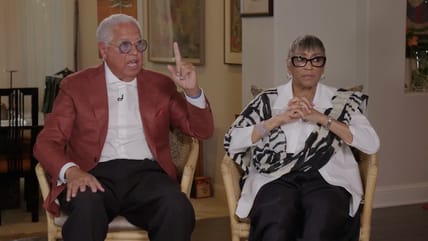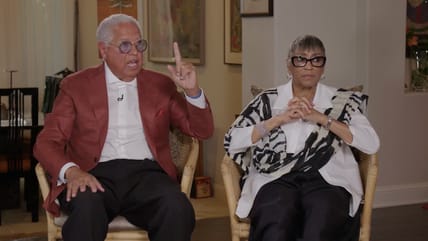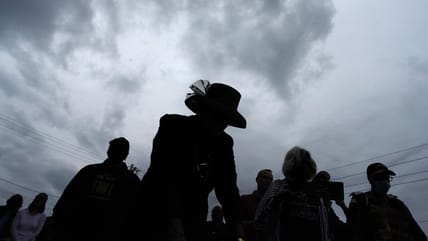Black elders have always been our griots, passing down stories not just to remember, but to protect — truths often omitted from textbooks, and carried through front porch talks and Sunday dinners. A century after one of the darkest chapters in American history, “The Greenwood Avenue Project” brings those voices to the forefront, revisiting the 1921 Tulsa Race Massacre and honoring the resilience that still pulses through the Greenwood community today.
[embedded content]
“People have done lots of documentaries about Tulsa and the riots and everything. But this one was different. This one is from the people…the people telling their perspective stories,” the documentary’s producer, John Wayne S. III told theGrio. “It’s one thing just to do a historical documentary about the facts that happened. It’s another thing to get stories that came down through the decades…from family to family, to tell personal things about how it affects them personally, instead of just what we read in the books.”
Directed by Karen Reese and Terry Baccus, the film weaves personal testimonies, historical context, and modern-day reflections into a story that stretches beyond tragedy and shows the “journey from devastation to recovery.” For Reese, the documentary’s people-first approach not only creates a sense of connection but also shines a light on the power of storytelling.
“[It’s] the power of your story,” she said, explaining how, unlike other documentaries, The Greenwood Project spotlights people regardless of their status or star power. “For me, [the plan] was to go into the community and just pick your regular people and say, you have a story. Come together and tell this story.”
Often referred to as “Black Wall Street,” Greenwood was once a thriving Black community in Tulsa, Oklahoma, until May 31, 1921, when a white mob, many affiliated with the Ku Klux Klan, decimated the district in a horrific 18-hour assault—killing hundreds and displacing thousands. And for decades, the massacre was erased from mainstream history. Now, as the current administration continues its efforts to erase Black history, “The Greenwood Ave Project” creators stressed the importance of these stories for younger generations.
“I would like for the documentary to be used as a teaching tool,” Reese explained. “A workbook was created to go along with the documentary. And it could be something that’s embedded into the school system.”
“Because they want to try to take the DEI, they want to take those histories away, it’s important that we remind our kids that…our history didn’t just start at slavery,” Wayne S. III echoed. “It’s important that our kids understand what happened so they can prepare themselves. So that if they see something, they can say, ‘Hey, we can’t let that happen again, and we can do something about it.’”
Through what Reese described as “little movies within a movie,” the documentary showcases the power and importance of community and the preservation of the stories and memories of our ancestors.
“I encourage people to stream it and take something from it that’s personal to them,” Wayne S. III concluded. “here’s so many things that happen in our community that we’re either we tell them the stories through our families…this is a way to get that story out to people so they can see what really happens, [and hopefully] say, ‘You know what, I want to do better. I want to be better.”
“The Greenwood Ave Project” is now available to rent/own on all North American digital internet, cable, and satellite platforms, as well as on DVD.
Freestyle Digital Media, the digital film distribution division of Byron Allen’s Allen Media Group, which owns theGrio, negotiated the deal to acquire the documentary.







